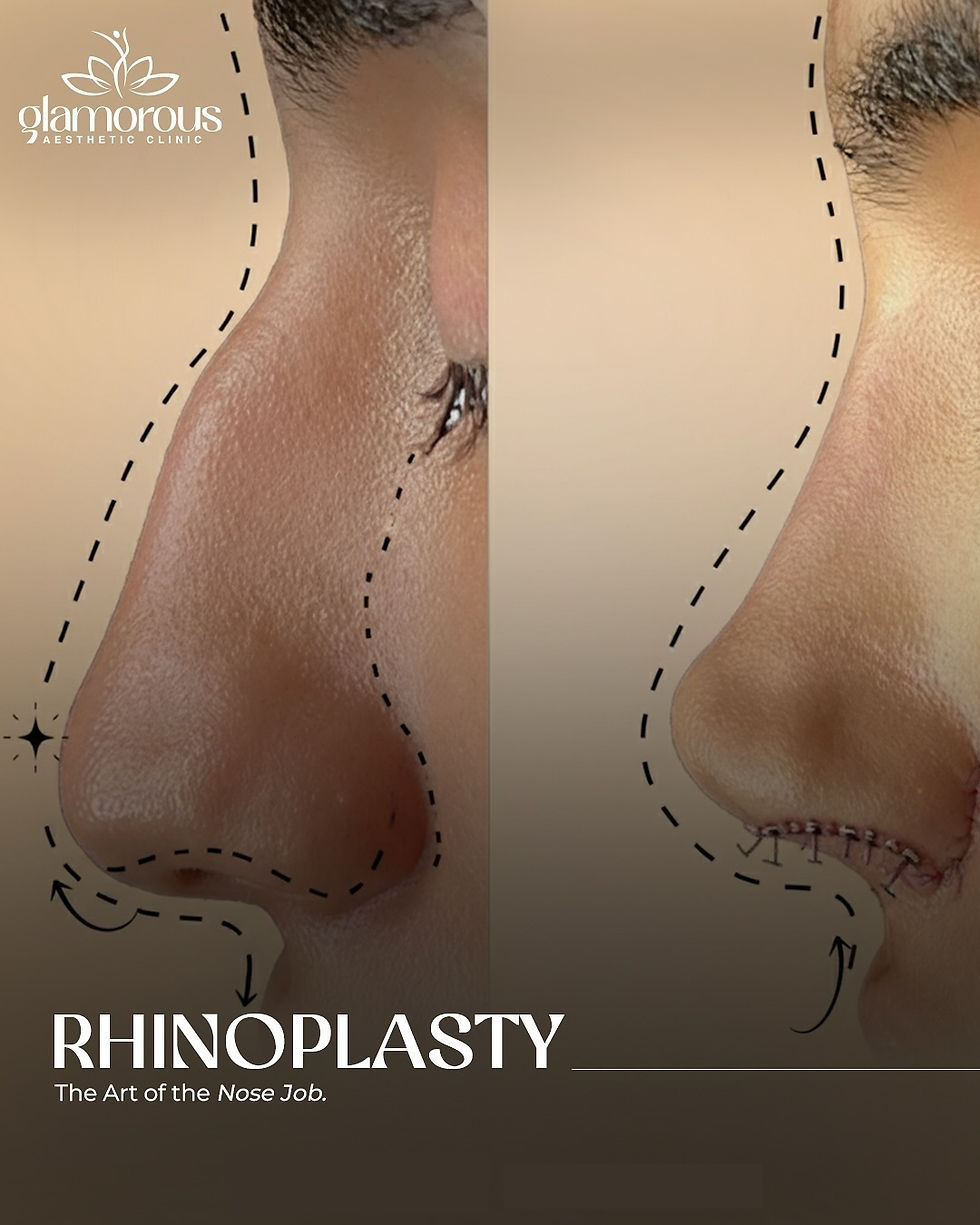Are Dermal Fillers Haram in Islam?
- dilawar khan
- Aug 3, 2023
- 3 min read
Updated: Jan 2
Introduction:
In recent years, the popularity of dermal fillers Dubai has surged, with many people seeking these treatments to rejuvenate their appearance and combat the signs of aging. However, for devout Muslims, there may be questions and concerns regarding the religious permissibility of such procedures. This article aims to explore whether dermal fillers are considered halal or haram in Islam, shedding light on various perspectives and religious opinions.
Understanding Dermal Fillers:
Dermal fillers are injectable substances used to add volume, smooth out wrinkles, and enhance facial contours. They are commonly composed of hyaluronic acid, a naturally occurring substance in the human body. Dermal fillers offer temporary results, making them a popular choice for non-surgical cosmetic enhancements.
The Islamic Perspective on Dermal Fillers:
Haram and Halal Concepts in Islam
In Islam, the concepts of halal (permissible) and haram (forbidden) guide the actions and decisions of its followers. While certain matters are explicitly stated in the Quran and Hadith, others require interpretation based on religious principles.
Consulting Islamic Scholars
The permissibility of dermal fillers in Islam is a topic of ongoing debate among Islamic scholars. Some scholars argue that since dermal fillers are temporary and non-permanent, they are not altering the natural creation of Allah and are therefore permissible. Others take a more cautious approach and deem them haram, believing that altering one's appearance goes against the concept of accepting one's natural features as bestowed by Allah.
Potential Reasons for Prohibition:
Alteration of Allah's Creation
One of the primary reasons some Islamic scholars consider dermal fillers as haram is the belief that altering one's appearance interferes with Allah's divine creation. This argument stems from the idea that humans should be content with the physical attributes granted to them by Allah.
Health and Safety Concerns
Another aspect that scholars consider is the potential health risks associated with dermal fillers. While these procedures are generally safe when performed by qualified professionals, there is always a risk of complications, which might lead to more severe issues.
Emphasis on Modesty
Islam emphasizes modesty and discourages vanity and extravagance in personal appearance. Some scholars view dermal fillers as contradicting these values, as they might encourage a superficial focus on physical beauty.
Perspectives Supporting Permissibility:
Correcting Deformities
Some scholars argue that dermal fillers may be permissible when used for medical reasons, such as correcting deformities caused by accidents or medical conditions. In such cases, the intention is to restore a person's appearance, not to alter it for mere aesthetic purposes.
Boosting Self-Confidence
Certain scholars consider dermal fillers acceptable if they help individuals regain self-confidence and improve their mental well-being, especially when dealing with insecurities due to age-related changes.
What is the Average Cost of Fillers?
The average cost of Dermal Fillers in Dubai is AED 1,800. The price range is AED 1,500 to AED 2,000 per syringe.
It should be pointed out that this is the general range based on the provider, the geographical location of the clinic, and the severity of the concern being treated. To know an accurate price, please contact any skincare clinic in your area.
Conclusion!
In conclusion, the permissibility of dermal fillers in Islam remains a complex and multifaceted topic. While some Islamic scholars may deem them haram due to concerns of altering Allah's creation and potential health risks, others may view them as halal if used for valid medical reasons or to boost self-confidence. As with any religious matter, individuals are encouraged to seek guidance from knowledgeable scholars and make informed decisions that align with their faith and personal beliefs.








Comments